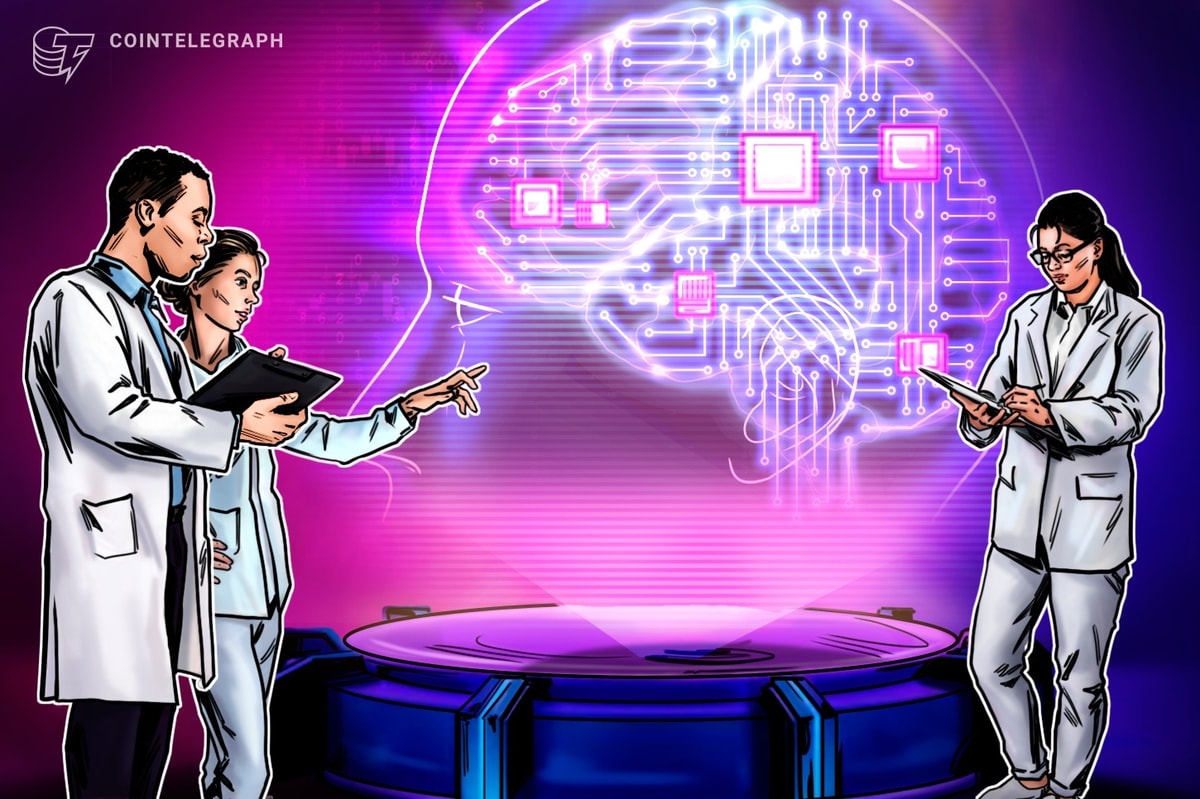The ASI Alliance can enable mass adoption of decentralized networks in the same way the world jumped into ChatGPT, SingularityNET CEO believes.
News
Own this piece of crypto history
The Artificial Superintelligence (ASI) Alliance, an industry merger aiming to challenge Big Tech dominance in artificial intelligence, has a long path to reach rivals’ computing power. Still, a key alliance member believes it can offer much smarter decentralization solutions.
On Sept. 19, ASI officially opened voting on bringing the cloud computing and blockchain platform Cudos into its alliance in a move to expand its computing power and AI tools.
Open until Sept. 24, the vote allows the community to decide whether Cudos should join and merge their native token, Cudos (CUDOS), with the ASI Alliance, which currently includes SingularityNET, the Ocean Protocol and Fetch.ai.
Source: Cudos
Cudos’ entrance into the ASI Alliance is expected to scale with the alliance’s growing computing needs on its mission to deploy artificial general intelligence (AGI), which attempts to create software with humanlike intelligence powered by immense computational power.
Cudos, Fetch, Ocean and SingularityNET are estimated to bring $200 million in computing hardware
With the potential Cudos merger, the ASI Alliance could bring $200 million of dedicated computer hardware if token prices remain healthy, SingularityNET founder and CEO Ben Goertzel told Cointelegraph in an interview on Sept. 19.
Despite this, the ASI Alliance is still far from achieving the level of computational power required for AGI. With rivals like OpenAI supposedly using around $1 billion of computing power for GPT-4, one could roughly estimate that the ASI Alliance is 80% far from reaching sufficient computing power to reach AGI.
SingularityNET Foundation’s founder and CEO, Ben Goertzel. Source: Cointelegraph
“We’re quite far from having as much hardware as OpenAI or Google,” Goertzel said, but the ASI Alliance has a significant potential in scaling with solutions. One such solution is Cudos’ NuNet, which enables any device to contribute to a global compute pool, he noted, stating:
“We have the ability to pull in a lot of other compute power. And this is what Cudos’ NuNet and Hypercycle is about. So we can, we can pull in computers from other facilities all over the planet and kind of leverage them all into this decentralized network.”
ASI Alliance “can be something way smarter” than Big Tech
In the interview, Goertzel also expressed confidence that decentralized AI initiatives like the ASI Alliance have a competitive advantage against Big Tech in the AI space.
Related: OpenAI fundraising could push valuation to $150B
“I believe this can be something way smarter than what Big Tech is doing,” the SingularityNET founder opined, stating:
“If we can get something way smarter than OpenAI’s o1 model using the OpenCog Hyperon and we can roll that out on a decentralized network. Then the world will jump into that the same way they jumped into ChatGPT, and then they will be using the decentralized network, just by the way, because it happens to be in the underlying infrastructure.”
Goertzel noted that the ASI hopes to have innovation by having many smaller projects, but there’s a shared incentive by having a shared token.
“So hopefully, you can get the benefits of mergers and without the sort of bogging down into a conglomerate that comes in with mergers in the traditional corporate world,” he added.
Additional reporting by Andrew Fenton.
Magazine: Creating ‘good’ AGI that won’t kill us all: Crypto’s Artificial Superintelligence Alliance
This article first appeared at Cointelegraph.com News

